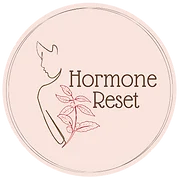Ever stood up too fast and felt like the room was spinning? Or had sudden dizziness that made the world tilt sideways? You’re not alone. Vertigo affects millions of people worldwide. But what if we told you that vertigo isn’t always an ear issue or a neurological problem? What if it had deeper roots — in your hormones, your gut, and even your lifestyle?
At Hormone Reset, we view vertigo not as a stand-alone condition, but as a symptom of internal imbalance. Our functional medicine approach goes beyond temporary fixes. We find the root cause.
What really is Vertigo?
Vertigo is a sensation of spinning or dizziness, often triggered by changes in head position or movement. It can be accompanied by nausea, unsteadiness, ringing in the ears, or even blurry vision. It is a symptom, not a disease in itself.
Types of Vertigo You Should Know:
- Peripheral Vertigo: Caused by issues in the inner ear (e.g., BPPV, Meniere’s Disease)
- Central Vertigo: Originates from brain or brainstem problems (e.g., stroke, migraine)
- Functional Vertigo: Arises from systemic imbalances like hormone shifts, gut dysbiosis, or stress
Why It Matters:
Understanding the type of vertigo helps identify the underlying root — and that’s where healing truly begins.
Also Read: What is Hashimoto’s Thyroiditis?
Vertigo Symptoms: Beyond Dizziness
The experience of vertigo can vary widely, and understanding each symptom can reveal valuable clues about what’s going on internally:
- A spinning or tilting sensation: This hallmark of vertigo often signals inner ear disturbances or brainstem involvement. However, it may also stem from sudden hormonal fluctuations or neurotransmitter imbalance due to poor gut health.
- Difficulty walking or standing: Balance issues point to impaired coordination between the vestibular system and central nervous system. Chronic inflammation or nutrient deficiencies (like magnesium or B12) can make these pathways sluggish.
- Nausea and vomiting: These symptoms are closely tied to the vagus nerve and gut-brain communication. Disruption in the gut microbiome or adrenal fatigue can make your body more reactive to movement or sensory inputs.
- Tinnitus (ringing in the ears): While often associated with inner ear damage, tinnitus can also emerge from hormonal imbalances (especially thyroid dysfunction) and chronic stress impacting neural regulation.
- Visual disturbances: Blurry vision, light sensitivity, or difficulty focusing can stem from vestibular-ocular reflex dysfunction, a condition aggravated by adrenal dysregulation, systemic inflammation, or brainstem signaling issues.
- Brain fog and difficulty concentrating: Common in both vertigo and gut dysbiosis, these symptoms are linked to impaired glucose regulation, poor neurotransmitter synthesis, dysbiosis, toxicity, and adrenal burnout — many of which are interconnected with hormone imbalances.
- Panic attacks or heightened anxiety: Anxiety can be both a cause and result of vertigo. Low GABA, high cortisol, and disrupted gut flora intensify the brain’s fear response. Addressing these through hormone and gut reset can calm the nervous system.
The Functional Medicine Lens: What’s Really Going On?
Unlike traditional medicine that treats vertigo symptomatically, functional medicine digs deep into underlying causes:
Gut-Brain Axis Disruption
A compromised gut microbiome affects neurotransmitter production (like serotonin and GABA), which regulate both mood and balance. This imbalance can lead to increased feelings of anxiety and depression, highlighting the vital connection between gut health and mental well-being.
Hormonal Fluctuations
Shifts in estrogen, cortisol, and thyroid hormones influence blood flow, fluid balance, and nervous system function. These hormonal irregularities can destabilise the vestibular system.
Brainstem and Neurological Triggers
Vertigo may stem from subtle brainstem dysfunctions. Even in the absence of obvious neurological symptoms, inflammation or hormone-related disruptions in this area can result in vertigo.
Deficient Nutrients and Neuroinflammation
Low levels of many nutrients including magnesium, vitamin B12, or omega-3s affect neural conductivity. Chronic inflammation further impairs communication between the brain and body. Consequently, these deficiencies can lead to various neurological issues, making it essential to maintain adequate nutrient levels for optimal brain health.
Also Read: What is Hashimoto’s Thyroiditis?
Gut Health and Vertigo: A Silent but Strong Link

The gut isn’t just for digestion — it’s a control center for brain signaling. Recent research has shown that the gut microbiome plays a crucial role in influencing our mood and cognitive functions. Additionally, the connection between the gut and brain highlights the importance of a healthy diet in maintaining mental well-being.
How It Works:
- Gut-Brain Communication: Microbes in the gut interact with the brain through the vagus nerve, forming the gut-brain axis, which impacts mood, emotional response, and cognitive function, influencing mental health and stress responses.
- Effects of Leaky Gut: Increased intestinal permeability, or leaky gut, can cause systemic inflammation that disrupts the vestibular system, essential for balance and spatial awareness. Chronic inflammation contributes to neurological disorders, making gut health vital for neurological well-being.
- Importance of Gut Flora: An imbalance in gut bacteria can lower levels of neurotransmitters like GABA and serotonin, which are crucial for mood and balance. It also increases LPA, a highly neurotoxic material. A healthy gut microbiome is necessary for synthesizing these neurotransmitters, and their deficiency can lead to increased anxiety, depression, and balance issues.
- Restoration of Gut Flora: Improving gut flora through dietary changes, probiotics, or other methods may enhance neurotransmitter production, potentially improving mood and balance.
The Hormone Reset Method: A Root-Cause Solution
At Hormone Reset, we heal from within. Our approach combines ancient healing principles by addressing the root causes of hormonal imbalances, we empower our clients to achieve lasting wellness and vitality. Hormone Reset programs integrate functional treatments, dietary modifications, and holistic practices with modern therapies to support each individual’s unique journey to health.
Deep Diagnostic Testing:
- Gut Microbiota Diversity and Dysbiosis: The gut microbiota consists of a diverse array of microorganisms that play critical roles in digestion, metabolism, and immunity. Dysbiosis refers to an imbalance in these populations, which can lead to various health issues, including inflammatory bowel disease, obesity, and autoimmune disorders.
- Hormonal Mapping: This process measures thyroid hormones, cortisol, and sex hormones to assess their levels and interactions, which are crucial for metabolism, stress response, and reproduction. Imbalances can cause disorders like hypothyroidism and fertility issues.
- Inflammatory and Immune Markers: Evaluating inflammatory markers such as cytokines and CRP is key to understanding chronic inflammation and autoimmune diseases, which can impact overall health.
- Brainstem Response: Testing brainstem response provides insights into auditory pathways and neurological health. Abnormal results may signify hearing issues or neurological conditions like autism.
- Nutrient Absorption and Deficiencies: Assessing nutrient absorption is vital to prevent complications from deficiencies, such as anemia or osteoporosis, influenced by factors like gut health and diet.
Individualized Healing Protocols:
Based on diagnostics, we create:
- Anti-inflammatory meal plans: Incorporating a variety of whole foods such as fruits, vegetables, whole grains, and healthy fats can significantly reduce inflammation in the body. Emphasizing antioxidant-rich foods helps combat oxidative stress and promotes overall health.
- Gut repair and detox support: Focusing on gut health can improve digestion and nutrient absorption while reducing symptoms of discomfort. Including probiotics and fiber-rich foods in your diet plays a crucial role in fostering a balanced microbiome.
- Herbal adaptogens to reset cortisol: Adaptogens like ashwagandha and rhodiola can help your body adapt to stress and regulate cortisol levels naturally. Integrating these herbs into your daily routine supports resilience and helps in managing stress more effectively.
- Hormone regulation strategies: Implementing lifestyle changes such as regular exercise, balanced nutrition, and stress management can significantly improve hormonal balance. Understanding the body’s hormonal fluctuations can also guide you in making appropriate dietary changes to support overall wellness.
- Brain retraining therapies and vestibular rehab: These therapies aim to strengthen the brain’s neural connections and improve motor function following disruptions. Engaging in targeted rehabilitation exercises can lead to enhanced coordination and cognitive function, promoting better overall brain health.
Whole-Person Lifestyle Reset:
We teach patients to:
- Regulate circadian rhythms: Establishing a consistent sleep schedule can significantly improve sleep quality and overall health. Aim to go to bed and wake up at the same time every day, even on weekends, to help your body maintain its natural rhythm.
- Activate the vagus nerve: Deep breathing exercises, such as diaphragmatic breathing and other techniques can stimulate the vagus nerve and promote relaxation. Incorporating these techniques into your daily routine can help manage stress and anxiety levels effectively.
- Reconnect with nature and reduce EMF exposure: Spending time outdoors can boost your mood and mental clarity, reducing feelings of stress and anxiety. Additionally, limiting exposure to electromagnetic fields (EMFs) by minimizing the use of electronic devices can support overall well-being.
- Move mindfully and reduce toxin load: Engaging in mindful movement practices, such as yoga or tai chi, can enhance your physical and mental health. Moreover, focusing on a clean diet and minimizing exposure to environmental toxins can lead to increased vitality and well-being.
Functional Neurology and Vertigo: Rebuilding Balance
Functional neurology focuses on neuroplasticity — your brain’s ability to rewire itself. It’s especially powerful for chronic or functional vertigo.
Therapies We Use:
- Eye Tracking and Gaze Stabilization: This technique involves training the eyes to follow moving objects smoothly, which can help improve visual processing and reduce dizziness. It is particularly beneficial for individuals experiencing balance issues due to vestibular disorders.
- Vestibular Retraining Exercises: These exercises aim to help individuals adapt to changes in their vestibular system, improving their balance and reducing symptoms like dizziness. They often include head movements and postural challenges to strengthen the brain’s ability to manage spatial orientation.
- Sensory-Motor Integration Therapy: This therapy focuses on enhancing the brain’s ability to process sensory information and coordinate motor responses. It is particularly useful for those with sensory processing disorders, as it combines various activities to promote better body awareness and movement control.
- Brainwave Entrainment Techniques: These techniques use rhythmic stimuli, such as sound or light, to synchronize brainwave activity. This can lead to improved focus, relaxation, and overall mental well-being, making it a valuable tool for stress reduction and cognitive enhancement.
These tools help rebuild lost connections, regulate brain-body communication, and create long-term stability.
The Gut-Brain Axis: More Than Just a Buzzword
Your gut makes over 90% of the body’s serotonin — a key neurotransmitter in mood and motion regulation. Inflammation in the gut impairs this process, leading to:
- Anxiety-triggered dizziness can make it difficult to maintain balance, often leading to feelings of unease and uncertainty.
- Heightened sensitivity to motion may result in nausea and discomfort, impacting daily activities and overall quality of life.
- Fluctuating vestibular control often presents a challenge in situations requiring stability, making it hard to navigate in busy or crowded environments.
The Takeaway: Gut health is brain health. And in vertigo, healing the gut is often the first step to lasting recovery.
Functional Vertigo: When the Tests Are Normal but You Still Feel Off
Have you been told “everything looks normal” but still feel dizzy? You may be dealing with functional vertigo — where the problem lies in how your body responds, not what shows up on a scan.
Clues That Point to Functional Vertigo:
- Symptoms worsen with stress or poor sleep
- Relief after dietary changes or probiotics
- Fluctuating intensity not linked to specific movements
- History of hormonal issues or autoimmune disorders
At Hormone Reset, we validate what you feel and uncover what’s unseen.
Why Hormone Reset Works Where Others Don’t
- Whole Person Approach: We believe in treating the entire individual, not just their symptoms. This means considering how everything works together, including the gut, brain, hormones, and emotions, to ensure a balanced and healthy body.
- Data-Driven Testing: We utilize precise testing methods rather than making guesses about your health. By analyzing your unique data, we can understand your specific needs and tailor a plan that works just for you.
- Bio-Individualized Protocols: Our health plans are customized to fit your personal health profile. We recognize that everyone’s body is different, so we design strategies that address your specific conditions and wellness goals.
- Empowerment and Support: We are committed to empowering you throughout your healing journey. This includes educating you about your health choices and providing support every step of the way, ensuring you feel confident and informed in your path to wellness.
Restoring Balance, Restoring Life
Vertigo doesn’t need to be a constant companion. By approaching it through the lens of functional medicine and hormone reset, you can take control of your health and find lasting relief. Understanding that vertigo is not merely a random symptom but a message from your body about underlying imbalances is the first step toward healing.
At Hormone Reset, we believe that vertigo is just one part of the puzzle. By addressing the root causes — whether it’s gut health, hormonal imbalances, stress, or neuroinflammation — we offer a holistic solution that doesn’t just mask the symptoms, but fosters true healing. It’s about restoring balance within your body, and in doing so, restoring your life.
Let us help you start that journey — because you deserve a life where you can feel calm, clear-headed, and centered.
References:
- Rodrigues-Pádua, J., Bercik, P., & Collins, S. M. (2020). The Role of the Gut Microbiota in Vestibular Function. Journal of Neuroinflammation. Link
- Romijn, M., Brummer, R., & Manfready, S. (2022). Gut Health and Neurotransmitter Imbalances: Implications for Functional Vertigo. Journal of Functional Medicine. Link
- Swain, S. E., McKinney, S. M., & Thompson, J. K. (2021). Understanding Central Vertigo: A Neurological Perspective. Neurology and Neuroscience Journal. Link
- Bercik, P., & Collins, S. M. (2018). The Gut–Brain Axis: Implications for Neurological Disorders. Journal of Clinical Investigation. Link
- Manfready, S., & Pande, A. (2021). Functional Medicine in Treating Chronic Dizziness and Vertigo: An Overview. Integrative Medicine Reviews. Link
- Swain, S., & Thompson, J. (2019). The Interplay Between Stress Hormones and Dizziness: The Unseen Link. Neuropsychology Review. Link
Vervent, D., & Tilk, M. (2022). Vestibular Rehabilitation and its Role in Chronic Vertigo. Journal of Vestibular Research. Link





Leave a Reply